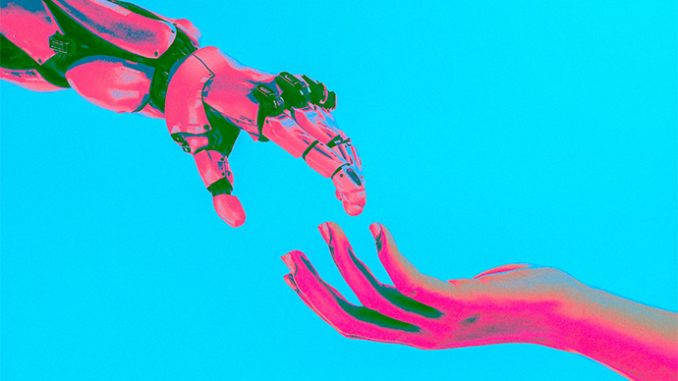By Andrew Petiprin, Catholic World Report, July 16, 2024
Andrew Petiprin is a columnist at Catholic World Report and host of the Ignatius Press Podcast, as well as Founder and Editor at the Spe Salvi Institute. He is co-author of the book Popcorn with the Pope: A Guide to the Vatican Film List, and author of Truth Matters: Knowing God and Yourself. Andrew was a British Marshall Scholar at Magdalen College, Oxford from 2001-2003, and also holds an M.Div. from Yale Divinity School. …
Amid all the tired discussions of the “use” of technology in evangelism, the most important thing we can say is that being Catholic is simply impossible in any kind of virtual or artificial sense, or even with much reliance on technology at all.
 In 2016, the legendary Japanese animator and filmmaker Hayo Miyazaki was invited to watch an AI-generated sequence, engineered by young computer animators. The images were of grotesque, writhing figures, which the creators imagined “could be applied to zombie video games.” Miyazaki looked on with concern, and he then began to discuss a disabled friend for whom even basic human motion is an ordeal. He explained, “Whoever creates this stuff has no idea what pain is. I am utterly disgusted.” To the shock and dismay of one of the eager young techies, Miyazaki concluded, “I strongly feel this is an insult to life itself.”
In 2016, the legendary Japanese animator and filmmaker Hayo Miyazaki was invited to watch an AI-generated sequence, engineered by young computer animators. The images were of grotesque, writhing figures, which the creators imagined “could be applied to zombie video games.” Miyazaki looked on with concern, and he then began to discuss a disabled friend for whom even basic human motion is an ordeal. He explained, “Whoever creates this stuff has no idea what pain is. I am utterly disgusted.” To the shock and dismay of one of the eager young techies, Miyazaki concluded, “I strongly feel this is an insult to life itself.”
Miyazaki’s concerns make sense to anyone who watches the video—the early AI creations are as risible as they are disturbing. But today’s technologists may chime in with a defense: “AI can do so much more now!” “It’s so much better now!” True. …







